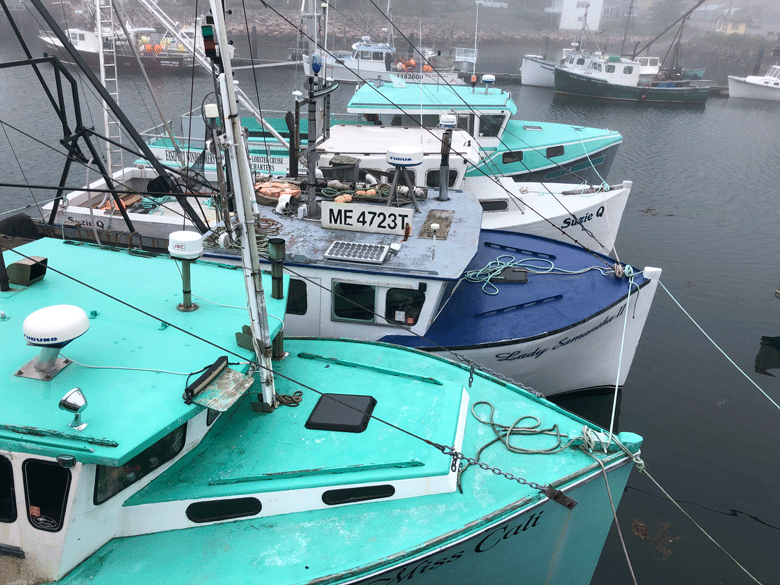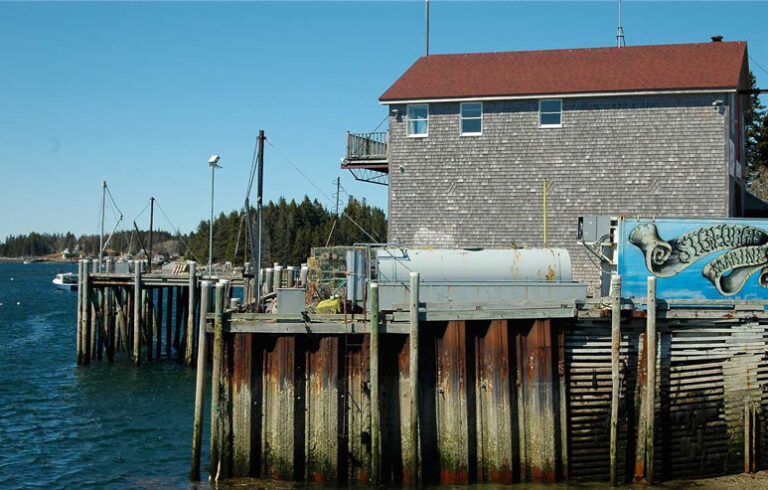During the rainy months of June and July, Aaron Lincoln, captain and owner of the schooner Olad and the cutter Owl out of Camden Harbor, would run into people he knew at the local grocery store.
“People were giving me condolences like my dad had died,” he said. “I realized ‘It really is as bad as I think.’” In July, he said, about half of the trips his boats would have made didn’t happen because of rain or fog.
Before June and all the rain hit, said Tony Cameron, CEO of the Maine Tourism Association, most people were optimistic about the season.
“Travel demand across the board was there and the sentiment to travel was very high, and all the national surveys and the things that we rely on to help with predictions were all very, very positive.”
While the official state tourism numbers won’t be released until later this year, Cameron said our “mixed bag” summer won’t be a washout. “I don’t think that we’re going to have a record-breaking year,” he said, “but I also don’t think that it’s going to be a horrible year by any measure.”
Glenn Tucker, owner of Coastal Kayaking Tours and Acadia Bike in Bar Harbor, echoed the bad news, good news assessment.
“It’s been a challenging year for everybody who’s involved in the outdoors tourism business,” said. “We’re fully staffed this year for the first time in quite a while, so we’ve had plenty of guides, but not quite enough work for everybody.”
June and July were rainy, and when it wasn’t raining, there often was fog, which is just as bad as rain for those working on the water, he said. “I know for instance, all the excursion boats in Bar Harbor, they’ve had a difficult time with not only rain, but fog,” he said.
The National Weather Service in Gray said that 5.68 inches of rain fell in Portland in June, which doesn’t seem like a lot when it felt like it rained nearly every day, but is far above the average of 3.77 inches for June. July was a repeat of June in many ways, with 5.75 inches of rain in Portland, again exceeding the average, which is 2.32 inches in July.
Interestingly, while August with more sunny days felt like a vast improvement over cloudy June and July, there was more rainfall—preliminary rainfall totals for the last month of summer were 5.8 inches in Portland, when the average is 3.57 inches. Instead of being spread out day after day, like in June and July, August’s rain happened in concentrated storms.
While rain can mean trouble for outdoor-related activities in Maine, for places not outdoor-focused, the summer’s rainy weather was a boon.
“I can definitively say that rain is good for business,” said Amanda Pleau, marketing and communications manager at Maine Maritime Museum in Bath. The museum’s top two busiest days as of the middle of August were on days when it poured, she said. On the museum’s best day, 591 people visited. The museum’s daily average in the summer is 236.
The rain also didn’t seem to deter people from eating out or camping. People still lined up under umbrellas waiting to place an order at Red’s Eats in Wiscasset. Sean Brown, co-owner of Brown’s Clam Shanty in Wells said he’s had a good year, and a spokesperson for Sandy Pines Campground, a glamping resort in Kennebunkport, said they’ve had a great season with nearly every weekend almost completely booked.
Further supporting Cameron’s belief that this summer won’t be the worst ever, the rain and gloom didn’t stop people from pouring into Acadia National Park. While the numbers of visitors are lower this summer than last, it’s not by much.
In June, visits were down by just over 6%, with 572,841 visits, 37,682 fewer visits than the previous June. In July, the number of visits was down only 3.31% from last year, with 772,434 visiting this July and 798,858 in 2022. Numbers for August were not available at press time.
While the weather of June and July is the worst stretch of bad summer weather he’s seen in 28 seasons, Glenn Tucker acknowledged it hasn’t been devastating—at least for him.
“I don’t mean to paint too gloomy a picture because we’re surviving fine and a lot of the tourists are here,” he said. “They came here to do outdoor things and they’re sucking it up and they’re going biking and they’re going kayaking—just not in as great numbers as they ordinarily do.”
Aaron Lincoln agrees. He’s had boom seasons and tough seasons, he said, and this is just one of those tougher seasons.
“It’s easy for us to sound super pessimistic, but I have an awesome life. I’m not discouraged.”





